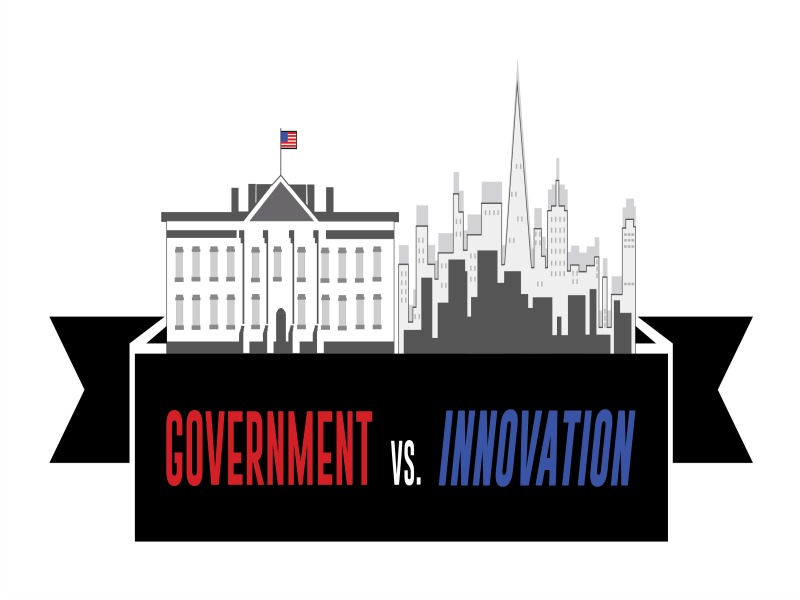Arun Sudhaman 13 Jan 2015 // 12:42PM GMT

The sheer ubiquity of technology is rapidly redrawing the engagement map for the sector's marketers. As part of its annual Trends Forecast, the Holmes Report sought the views of tech specialists around the world to understand the outlook for this year and beyond.
1. Social grows up
In the B2B world, particularly, social media has sometimes been viewed as a necessary evil, often being utilised without the kind of affection engendered among consumer marketers. That is changing rapidly, with more sophisticated influencer marketing campaigns becoming more popular with B2B brands, alongside better targeted paid social strategies.
"Understanding buyers’ influencers — not just the buyers themselves — targeting the key individuals in question, engaging internal audiences and building and sustaining relationships with these influencers has to be a focus for savvy tech marketers," says CCgroup MD Richard Fogg.
"This is especially the case in markets where deal sizes stretch into the millions of dollars. The driver for this is continued investment in social with relatively ‘light’ returns – applause and engagement metrics look good on paper, but will realistically never affect a company’s bottom line."
2. Lead generation
Lead generation has become a major focus for technology PR specialists, with companies looking beyond awareness to try and better integrate into their sales cycles.
"Stuff that doesn't drive to sales or can't be attributed towards driving purchase intent will fall by the wayside," says GolinHarris Asia-Pacific digital innovation head Zaheer Nooruddin. "Budgets will grow for scalable, digital earned media solutions, as well as for paid social media solutions."
Expect this to also result in a greater use of 'commstech', as described by Waggener Edstrom EMEA GM Chris Talago. "We’re seeing the application of technologies originally developed for media buying and the ad space mixed with dna from comms consultants We now have the ability to run far more targeted campaigns, with more predictability of outcome, better engagement with audiences and at lower cost. 2015 will see agencies sprinting to understand and adopt techniques as clients start demanding these more integrated approaches."
"From formative audience insight, content marketing and earned/owned/paid implementation, to web analytics, lead attribution modelling and marketing automation advice, the opportunities are vast," adds Fogg. "Tech marketers are taking strategic and creative theming extremely seriously, often favouring PR as the source of ideas that tie programmes together."
3. Consumerisation
The consumerisation of B2B technology is not a new trend, but it is rapidly changing expectations of how technology impacts everyday life, thanks to some breakthrough advances in 2014.
"In fact, consumers have now seen enough to believe that anything is possible in terms of product evolution," says John McInerney, SVP of brand marketing at RFI Studios.
"But as tech continues to exponentially outpace consumers' imagination, we believe consumers will self-engage with the latest technology more than ever, helping to move innovation forward at an even more rapid pace."
Accordingly, expect continued product evolution as high-tech applications embodied by mobile devices, augmented reality and sensors are increasingly deployed in employee and consumer contexts.
"The technologies behind these seamless experiences are all beneficial, but more importantly is the impact that this has in bringing all of us closer together," says PayPal global brand and comms VP Christina Smedley. "Technology will continue to drop down barriers in the coming year ensuring that all across the global are able to achieve their goals and desires in a seamless way."
4. Insights trump data
The rise of the Internet of Things, wearables and user-oriented computing has created a deluge of big data. For marketers and PR people, the critical challenge is being able to find the information they need from a bewildering array of data sources, and using those insights to drive genuine behavioural change.
With that in mind, analytics is likely to become a more important element of every tech product, from apps to servers, as companies increasingly demand a realtime understanding of their customers.
For tech PR agencies, meanwhile, the focus must remain on investment, in both skills and tools. "The ambition is to ‘build’ out the ‘account planner’ role within tech PR consultancies in 2015, but with insight so infrequently available ‘off the shelf’ and social feeds and web-scraping simply inadequate it falls to agencies to create their own," explains Fogg.
"So, be it desk-based content analysis, qualitative interviews or quantitative surveys, I expect efforts by tech PR consultancies to create new insight into how audiences behave to continue apace in 2015."
5. Cybersecurity
Frost & Sullivan predicts that the global cyber security market will to grow to $155bn by 2020, from $71bn in 2013. That speaks to the critical importance of cyber security in an era of increasingly rampant hacking and cybercrime.
And it is not just big companies like Sony under attack, with security breaches also costing small companies a six-figure sum every year.
Meanwhile, the desire for greater cybersecurity also indicates the importance of data privacy. The White House, for example, is pushing for greater regulation, and the EU has already demonstrated an activist stance towards privacy regulation.
Accordingly, expect technology companies — across such areas as telecommunications, financial services and social networking — to start buying much more in the way of specialised cybersecurity and privacy advice from their consultancies, as this issue becomes one that their marketers can no longer ignore in 2015.


































.jpg)

































